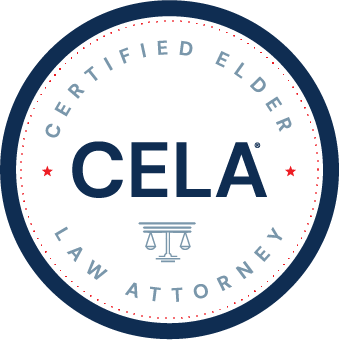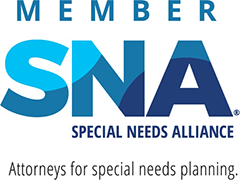Firm News
Ongoing Child Support For A Special Needs Child And Creation Of A Special Needs Trust
A recent New Jersey Supreme Court decision is illustrative of the issues involved when a parent is attempting to modify or eliminate child support payment for a disabled adult child. The specific question presented to the court was whether the creation of a Special Needs Trust for an adult disabled child may be used to eliminate direct child support payments to the custodial parent and whether a guardian ad litem should be appointed on behalf of the child when litigation ensues under these circumstances. J.B. v. W.B. (A-111-11)(069972). The short answer to both questions is maybe.
In the J.B. v. W.B. matter, the parties had negotiated a Property Settlement Agreement when their autistic child was fourteen years old. J.B. agreed to pay $50,000 per year in child support and unreimbursed medical expenses, provide for medical benefits and maintain a $2.5 million insurance policy to secure child support in the event of J.B.'s death. The parties both acknowledged in the Property Settlement Agreement that the child would likely never be emancipated. The Property Settlement Agreement further indicated that if the parties were unable to agree as to the payment of post-high school educational costs, either party had to the right to apply to the Court for appropriate relief.
In 2009, J.B. filed an application with the Court requesting that a Special Needs Trust be created, that his child support payments be paid to the Trust and that a Guardian Ad Litem be appointed on behalf of the child who was then twenty-one years old and expected to attend an out-of-state post-secondary school. W.B. opposed the application asserting that while she did not wholly object to the creation of a Special Needs Trust, she objected to termination of direct child support payments to her as the custodial parent until such time as government benefits commenced.
The trial Court denied J.B.'s application finding that no change in circumstances existed to warrant relief especially because the parties acknowledged that the child would have special needs in the future. The Appellate Division affirmed the trial Court's determination noting that the applicable standard to apply to the application was changed circumstances and further found that J.B. did not establish with certainty that the child would be eligible for governmental benefits. J.B. appealed to the New Jersey Supreme Court. The Supreme Court found that J.B.'s application to establish a Special Needs Trust for the future financial needs of his autistic son should have been evaluated in accordance with the best interests of the child standard.
The decision of the New Jersey Supreme Court noted that Federal and New Jersey statutory laws permit creation of Special Needs Trusts to allow disabled persons to maintain eligibility for needs-based government benefits such as SSI and Medicaid since assets of such Trusts are not considered available assets for purposes of determining eligibility of these government benefits. The Court found that creation of such Trusts may be an effective tool in planning for the financial support of a disabled child. However, a parent seeking to modify a child support obligation through a Special Needs Trust must demonstrate a specific plan and show how the plan will benefit the disabled child. At a minimum, the Court must have a complete understanding of the current physical, psychological, educational, vocational, and recreational needs of the dependent, disabled child, the cost to support those needs, and the resources available to fund those needs. The Court must also be provided eligibility rules, the time it will take to gain eligibility, and how long it will take to access benefits once eligibility is established. The plan must also address the terms and conditions for disbursement of the corpus of the trust and designate a trustee.
The Supreme Court found that J.B.'s application failed to present a plan to the Court and failed to show how the Special Needs Trust would benefit the child. J.B.'s mere assertion that creation of a Special Needs Trust would benefit the child because he would be eligible for government benefits was more of a recitation of a "concept" and also speculative. Since a specific plan was not presented, the trial Court could not evaluate whether a special needs trust furthers the best interests of the child.
With respect to whether or not New Jersey law allows the appointment of a guardian ad litem on behalf of a child under the same circumstances as the J.B. v. W.B. matter, the Supreme Court found that such a determination is within the discretion of the trial court and that under certain circumstances, the court should not hesitate to appoint a person to permit the dependent, disabled child to have a voice in an application that may fundamentally affect his or her future.
Regardless of which side you represent, it is critical that a family law attorney retain the services of an elder law attorney who is well versed in special needs trusts and government benefit programs.












